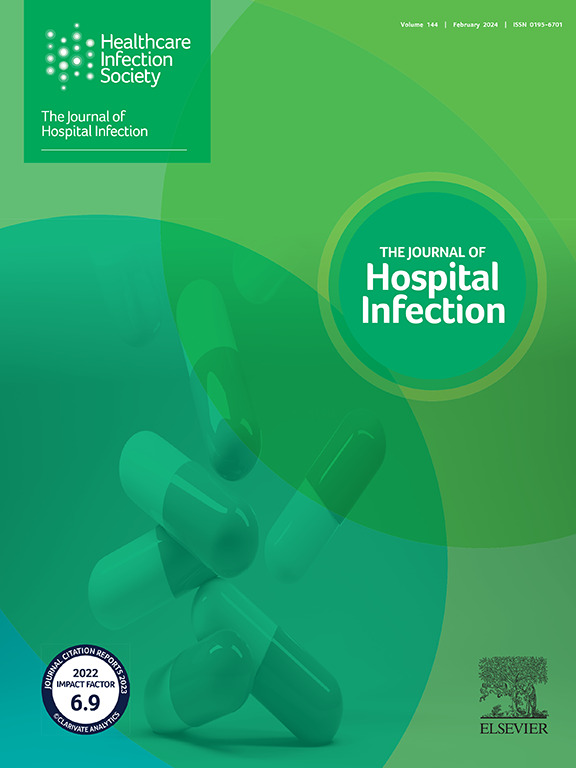为荷兰卫生保健专业人员制定感染预防和控制指南:对这一进程的评价。
IF 3.1
3区 医学
Q1 INFECTIOUS DISEASES
引用次数: 0
摘要
背景:医疗保健中的医院感染对患者构成潜在的危及生命的风险,并可能推高医疗保健费用。为了解决这个问题,荷兰感染预防指南合作伙伴关系(SRI)制定了基于证据的指南,以减少医院、长期护理机构和公共卫生机构的感染(1)。我们评估了专业人员在循证指南制定过程中的经验,以深入了解当前流程的可行性。方法:对2021-2022年指南制定小组(GDG)成员进行调查。参与前的预期数据;有经验的工作量;对GDG的组成、指南制定过程以及通用或特定领域指南的满意度;并对实施因素进行了收集和分析。结果:17个GDGs的168名成员中有80名(48%)做出了回应。在参与之前,46名(57%)受访者的预期是明确的。27名(34%)受访者认为时间投入高于预期,尤其是文献筛选。70名(88%)受访者认为他们的协会得到了充分的代表,69名(86%)受访者表示有足够的感染预防知识。然而,25个(31%)受访者表示,尽管没有提供替代方案,但建议评估、发展和评估分级(GRADE)不适合评估现有证据。32个(40%)受访者希望将通用指南改编为特定领域的指南。结论:答复者强调有必要将通用指南改编为特定领域的指南,这意味着有必要制定与该领域需求密切一致的指南。解决工作量管理、方法问题和实施战略等有待改进的领域,对于优化制定过程和确保指南对感染预防产生影响至关重要。本文章由计算机程序翻译,如有差异,请以英文原文为准。
Developing infection prevention and control guidelines for healthcare professionals in the Netherlands: an evaluation of the process
Background
Nosocomial infections in healthcare pose potentially life-threatening risks to patients and can drive up healthcare costs. To address this, the Dutch Collaborative Partnership for Infection Prevention Guidelines (SRI) creates evidence-based guidelines to reduce infections in hospitals, long-term care facilities, and public health settings.
Aim
To evaluate professionals' experiences with the evidence-based guideline development process in order to gain insights into the feasibility of the current process.
Methods
Guideline development group (GDG) members from 2021 to 2022 were surveyed. Data on expectations prior to participation; experienced workload; satisfaction with the composition of the GDG, the guideline development process, and generic or domain-specific guidelines; and implementation factors, were collected and analysed.
Findings
Eighty out of 168 (48%) members of 17 GDGs responded. Expectations were clear to 46 (57%) respondents prior to participating. Twenty-seven (34%) respondents found time investment higher than expected, especially literature screening. Seventy (88%) respondents agreed that their association was represented sufficiently, and 69 (86%) reported that there was sufficient knowledge on infection prevention. However, 25 (31%) respondents expressed that Grading of Recommendations Assessment, Development and Evaluation (GRADE) is unsuitable to assess available evidence, although not offering alternatives. Thirty-two (40%) respondents wished for the adaptation of generic guidelines into domain-specific guidelines.
Conclusion
Respondents emphasized the need for adaptation of generic guidelines into domain-specific guidelines, implying the necessity to develop guidelines that closely align with the needs of the field. Addressing areas for improvement – such as workload management, methodological concerns, and implementation strategies – are crucial to optimize the development process and ensure the guidelines' impact on infection prevention.
求助全文
通过发布文献求助,成功后即可免费获取论文全文。
去求助
来源期刊

Journal of Hospital Infection
医学-传染病学
CiteScore
12.70
自引率
5.80%
发文量
271
审稿时长
19 days
期刊介绍:
The Journal of Hospital Infection is the editorially independent scientific publication of the Healthcare Infection Society. The aim of the Journal is to publish high quality research and information relating to infection prevention and control that is relevant to an international audience.
The Journal welcomes submissions that relate to all aspects of infection prevention and control in healthcare settings. This includes submissions that:
provide new insight into the epidemiology, surveillance, or prevention and control of healthcare-associated infections and antimicrobial resistance in healthcare settings;
provide new insight into cleaning, disinfection and decontamination;
provide new insight into the design of healthcare premises;
describe novel aspects of outbreaks of infection;
throw light on techniques for effective antimicrobial stewardship;
describe novel techniques (laboratory-based or point of care) for the detection of infection or antimicrobial resistance in the healthcare setting, particularly if these can be used to facilitate infection prevention and control;
improve understanding of the motivations of safe healthcare behaviour, or describe techniques for achieving behavioural and cultural change;
improve understanding of the use of IT systems in infection surveillance and prevention and control.
 求助内容:
求助内容: 应助结果提醒方式:
应助结果提醒方式:


